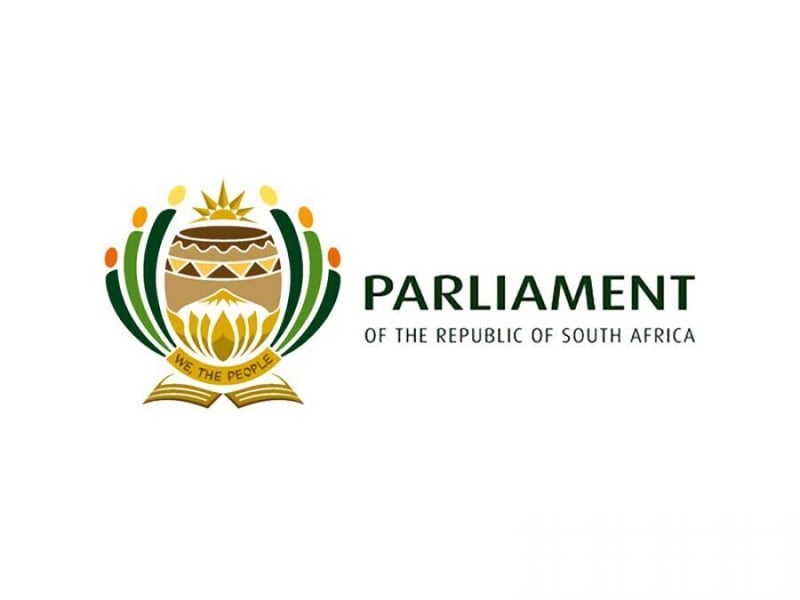Lack of Maintenance by Municipalities at the Centre of Vaal River System Contamination
Written by: MyPressportal Team Save to Instapaper
While the Committee supports the building of new units it has emphasised that the old units must be maintained to ensure optimal utilisation of the entire plant
PRETORIA, South Africa, August 21, 2018/ -- The Portfolio Committee on Water and Sanitation is convinced that the lack of investment in maintenance of the sewage infrastructure by the Sedibeng District and Emfuleni Local Municipalities is at the centre of crumbling current infrastructure leading to contamination of the Vaal River System.The committee visited the municipality and the Sebokeng Waste Water Treatment Plant and found that some of the units were not functional leading to overloading of the remaining units. The Committee has always emphasised the need for proper investment on maintenance of infrastructure to ensure longevity of the system and to avoid the unintended consequences like the spillage into the river system. It is also a requirement by the Department of Cooperative Governance’s Back to Basics programme that municipalities must spend 10% of their budgets on maintenance.While the Committee supports the building of new units it has emphasised that the old units must be maintained to ensure optimal utilisation of the entire plant. Furthermore, the government must find ways to develop infrastructure with less cost by utilising technological advances in the market. A matter of concern for the committee was the delays in implementing the Sebokeng Regional Sewer Scheme that ultimately has a negative social and economic consequences attached. Besides the obvious cost overruns associated with increasing building cost of materials, the other negative consequence is to small medium enterprises that would have benefited from the contract and created much needed job opportunities in the area.“The other social and economic impact the municipality faces as a result of the delay is that due to the spillage into the river system the amount of money it spends on purifying the water increases astronomically which affects the municipal finances negatively,” said Mr Mlungisi Johnson, the Chairperson of the Committee.In relation to the delays of the Sebokeng Regional Sewer Scheme, the Committee has urged the department and rand water to find workable solutions to current court challenges as the money spend in court cases could rather be invested in service delivery.It is also concerning that municipalities are still using old infrastructure despite increasing populations and development which intensifies demand on the system. Government must make a concerted effort to invest money in the development of bigger infrastracture able to handle the current demand. The Committee has encouraged the department to put in place a regulatory framework that will enable the reuse of water as soon as it is treated at waste water treatment plants. “Currently municipalities treat water and release it into the river system. With a limited investment a small plant can be installed at waste water plants that will ensure that the water is redirected back into the system,” Mr Johnson suggested. At the centre of the committee’s preoccupation is ensuring that spillage into the Vaal river system is stopped. Furthermore, the reduction of costs of purifying chemicals will ensure that municipalities have more money to spend on service delivery. As such, the committee has resolved that it will get monthly reports on interventions by all spheres of government in resolving the problem.
Distributed by APO Group on behalf of Republic of South Africa: The Parliament
Get new press articles by email
We submit and automate press releases distribution for a range of clients. Our platform brings in automation to 5 social media platforms with engaging hashtags. Our new platform The Pulse, allows premium PR Agencies to have access to our newsletter subscribers.
Latest from
- 7 Business Trends Your SME Can Leverage In 2026
- Sadilar Amplifies Visibility And Impact During Conference Season
- Future-ready Logistics- 5 Shifts TO Watch In 2026 (SUB-saharan Africa)
- Dunlop Urges Motorists To Prioritise Tyre Safety On The Busy Joburg To Cape Town Festive Route
- Poverty Trends Report Shows National Progress But Flags Growing Challenges In Gauteng
- SDG Challenge SA 2025 Highlights The Power Of Youth Innovation In Shaping A Sustainable Future
- Experienced Industry Leader Pauli Van Dyk Named Dean Of AFDA’s Upcoming Hatfield Campus
- South Africans Keep Tourism Alive As Homegrown Travel And Local Spending Rise
- Pretoria Student Wins Global Excel Esports Competition
- AfDB Steps Up Support For Somalia With $76m Investment In Roads And Regional Integration
- Corporate Law Experts Warn Directors Of Serious Consequences For Improper Transaction Approval
- New 3% Inflation Target Begins To Shift Expectations In South African Economy
- Retail As A Development Catalyst Drives New Africa Developments’ Inclusive Growth Strategy
- Collaborative SEF Model Shows How Civil Society And State Can Rebuild Economic Trust
- Shumani Accelerates Industrial Growth With Bheka Forklifts And New Equipment Plans For 2026
The Pulse Latest Articles
- Education Is The Frontline Of Inequality, Business Must Show Up (December 11, 2025)
- When The Purple Profile Pictures Fade, The Real Work Begins (December 11, 2025)
- Dear Santa, Please Skip The Socks This Year (December 10, 2025)
- Brandtech+ Has 100 Global Creative Roles For South African Talent (December 9, 2025)
- The Woman Behind Bertie: Michelle’s Journey To Cape Town’s Beloved Mobile Café (December 9, 2025)
